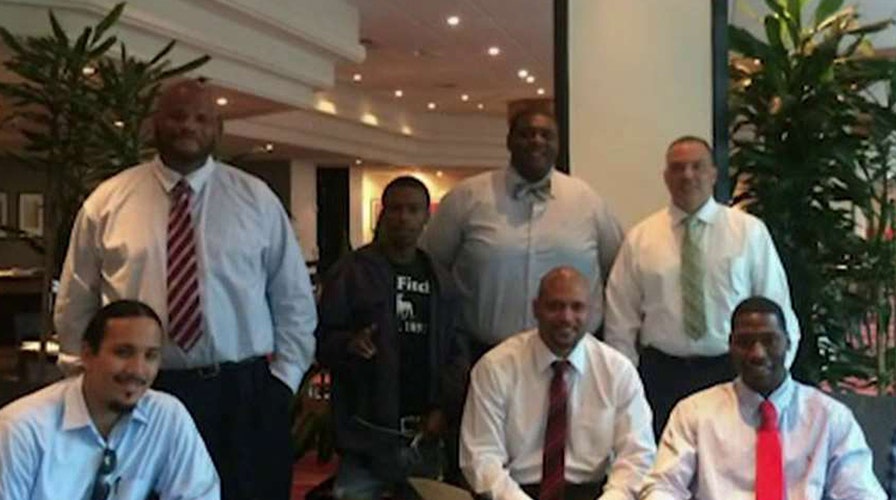City pays suspected criminals not to commit crimes
Claudia Cowan reports on program in Richmond, California
A San Francisco suburb is testing a controversial strategy to combat the gun violence that's plagued the community – paying people not to commit crimes.
The experiment known as “Advance Peace” is being conducted in Richmond, Calif., and works like this: The 18-month fellowship hires convicted felons to "court" troubled youth -- who so far have avoided arrest due to lack of evidence -- with offers of cash and out-of-town vacations if they mend their ways.
If, after six months, a “fellow” in the voluntary program begins to achieve specific goals, they can earn up to $1,000 a month.
That doesn't sit well with victims’ rights activist Lorrain Taylor, whose twin sons were gunned down in the nearby city of Oakland when they were just 22.
"If I were to find out that the guy who murdered my twin sons was getting a thousand dollars for a promise? I mean, how can you trust? ... I mean, if they kill somebody, they will lie," Taylor said, breaking down in tears.
But supporters say the money, which comes from private donations, is like an allowance that many American parents give their children as a reward for hard work -- and argue daily, intensive engagement is the only way to disrupt urban gun violence.
Fox News went for a drive with one ex-con, Joe McCoy, who now works for the city and has paired up with young “fellows” like 26-year-old Harold Sylvan to help them set positive goals.
"Like, I've never had a job," Sylvan, who has served time for drug crimes, told Fox News. "I'm 26 and just now getting a job. I never knew what a W-2 was, or how you make [a] resume. They taught me everything."
As he searches for more youth to participate in the program, McCoy said, “We're gonna go all over the area.”
Sylvan and other so-called “fellows" get to travel, too. One vacation shot shows Sylvan posing for the camera in Los Angeles, just one of the many excursions available to those who stay out of trouble. Other destinations include New York, Washington D.C., and even London.
“Our point is to connect with that young man in a very human way, to change that mindset that gives rise to destructive behavior,” said program director DeVone Boggan with the Richmond Office of Neighborhood Services. “Services don't stop bullets, but relationships can, and relationships do.”
Boggan said most of the 82 men who've gone through the program are still alive, and are not considered suspects in recent gun crimes.
But critics say the Advance Peace program sends a bad message, and that if anyone should get money or trips, it should be the victims of violence.





